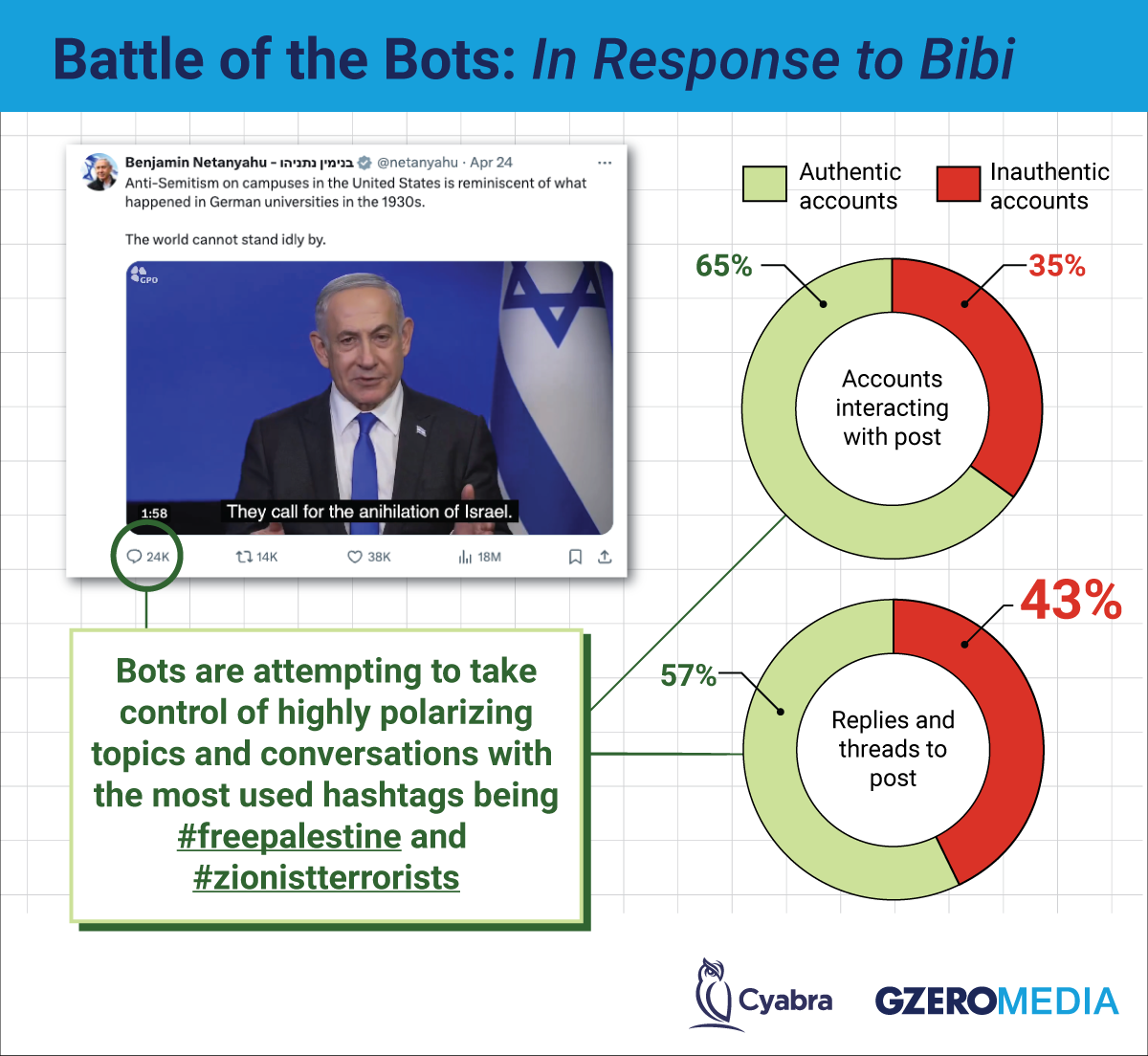X has become a critical means for politicians and the public to broadcast their views on current events, often triggering controversy, trolling, and bitter battles in the new political arena: the comments section. Trouble is, it’s not just people posting. Social media bots — programs that automate interactions and post content on social media in ways that mimic human behavior — are also flooding the comments section, which means you may be responding to fake accounts, not humans.
We partnered with Cyabra, an Israel-based data firm that investigates fake actors on the internet, and found that bots flocked to Bibi’s post in droves. They made up over 43% of all replies, and of the bots spreading negative sentiment about the post, 19% used keywords like “genocide,” “kids,” and “children.”
The investigation also found that while real accounts outnumbered fake ones, the bots were far more active, with many commenting multiple times. Across the board, they found that up to 31% of comments responding to posts from key political figures are fueled by fake accounts.
